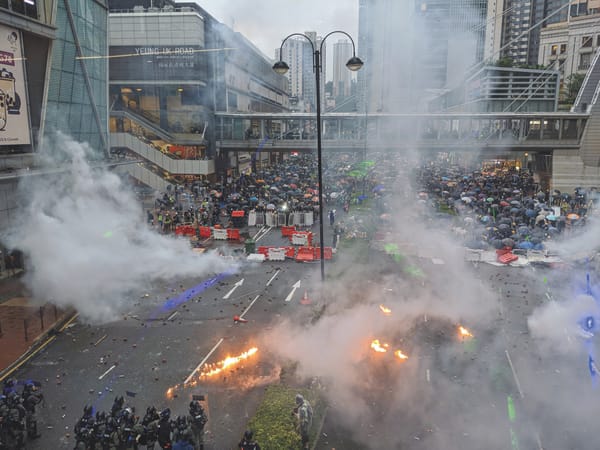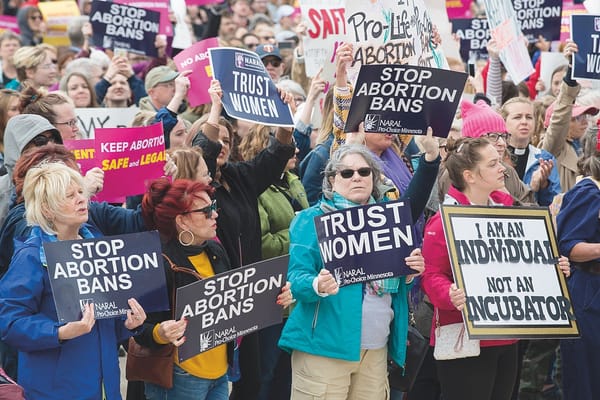Fringe Parties: What are they good for?
Eamon Akil Farhat discusses fringe parties and the part they have to play in the UK general election

The trigger has been pulled on what every political pundit is calling the most important general election of our generation. A choice between chaos with Johnson or a strong and stable Corbyn, or maybe it was the other way round? For many it is a choice between Brexit, championed by Boris Johnson, and remain, championed by a woman that would be prime minister: Jo Swinson.
Although Brexit will define and dictate the outcome of this election, there are a plethora of other issues which desperately need to be put to the people. Whether it be the NHS, housing, education or the environment, since this decisive (or divisive) question was asked, everything else has been put on hold. Already, the privatization of the NHS has been the first headline issue but as with most elections, it will probably be forgotten quicker than you can say “Jacob Reese-Mogg has no common sense”. What this election needs is some healthy debate about a range of issues.
In recent years, the Labour-Tory duopoly has been breaking down due to the appearance of smaller parties. Unfortunately, the current first past the post voting system, a party can win a majority of seats in Parliament without having even near to a majority of the popular vote. This was the case in 2015 when the Tories won a parliamentary majority with only 37% of the popular vote. As weird as this sounds, parties only need to be the most popular party in each constituency and thus when third place parties become more important, the margins for victory become tiny.
One party, which is trying to push a more diverse set of issues, has had some impact despite being very new. They have over 65,000 members across the country, 15,000 more than the Greens. They have over 50 branches across the UK but chances are you’ve never heard of them. They are the Women’s Equality Party.
Formed in 2015 by Catherine Mayer and the legendary Sandi Toksvig, the Women’s Equality Party hoped to push for an egalitarian society. Equal pay, representation, and fair treatment of women in the media were some of the party’s initial goals. Much like Brexit, this new sort of political ideology united those from across the political spectrum who all agree that women’s issues have for too long been put on hold.
Unfortunately, the party has had very limited election success in the 350 million elections we have had since 2015. Their candidate, Kay Wesley, was elected as a councillor to Congleton Town Council in 2019, but what about women outside of Congleton? Former party leader, Sophie Walker, understood that winning elections was not the primary goal of the party. Places where the party made an appearance, women’s issues were all of a sudden put on the table by the other mainstream parties. You can’t ignore women’s issues if you come face to face with the unapologetic feminist stance that this party has taken. An example of this was when Labour mayor Steve Rotheram embarked upon a long-term plan to end violence against women and girls in Liverpool. This bold move was done, according to him, due to Tabitha Morton, the Women’s Equality mayoral candidate, who had made it a priority in her campaign. There are many other examples of this across the country, and although they are not always as tangible, a general shift in the conversation towards women’s issues is being seen.
This is all well and good, but unfortunately, a strong Women’s Equality party or any other small party for that matter could split the vote and misrepresent the views of constituents. As aforementioned, the system is flawed and as smaller parties become stronger and stronger, our voting system gets weaker and weaker. Women across the country who may be inclined to vote for this feminist party might be doing themselves a disservice if they take votes away from Labour, for example, and pave the way for the Conservatives.
Although the Women’s Equality Party is the main focus here, other parties are available too – and they all pose the same issues. The Green Party for example, has been faring better and better in elections with a historic result in the European elections. However, they could also cost Labour some seats as they split the vote. Labour’s new initiatives like the Green New Deal can be seen in part as a way of reconquering some of the political territory linked to environmental issues. The Green Party will probably not have more than a bike-load of MPs journeying to parliament on December 14th, but they have had an impact on the politics of other parties which could possibly make their way into government.
Unfortunately, it is not all sunshine and rainbows in the current political scene. The Brexit Party, which may or may not have huge electoral success, has already had a huge impact especially on the Conservative policy. The pressure, and the chances of a mass exodus of bumbling British Brexit voters from the Tory’s former fanbase has changed the game for Boris Johnson. Taking a hard stance on Brexit is now his top priority, but will it be enough to prove that he is in fact the real Brexit party?
Another small party which is worth a special mention is the Lib Dem’s. They definitely do not want to be known as such and want so desperately to gain the credibility of being a main party with a real chance of winning the whole thing. A Lib Dem majority seems as likely right now as Brexit by the 31st of October (2019). Unlike the Green party and the Women’s Equality party, the centrist politics of the Lib Dems means they do not really cause shifts in other parties’ policies. Sure, Labour has adopted the policy of a confirmatory referendum, but many within the party had been pushing for this for a while.
Fringe parties can help open political discourse, diversifying the debate and pushing bigger parties on key issues. However, when they get a bit too big, they start to actually cause more harm than good – at least in our current electoral system. The Lib Dems today, have the potential of letting a ditch-dying Boris Johnson walk into number ten stronger than ever. But at the end of the day, small parties do have the power to impact politics without winning that many votes. Maybe one day an LGBTQ+ party will spring up shifting the discourse or even a Students party hoping to lower tuition fees to pre-Clegg levels.








